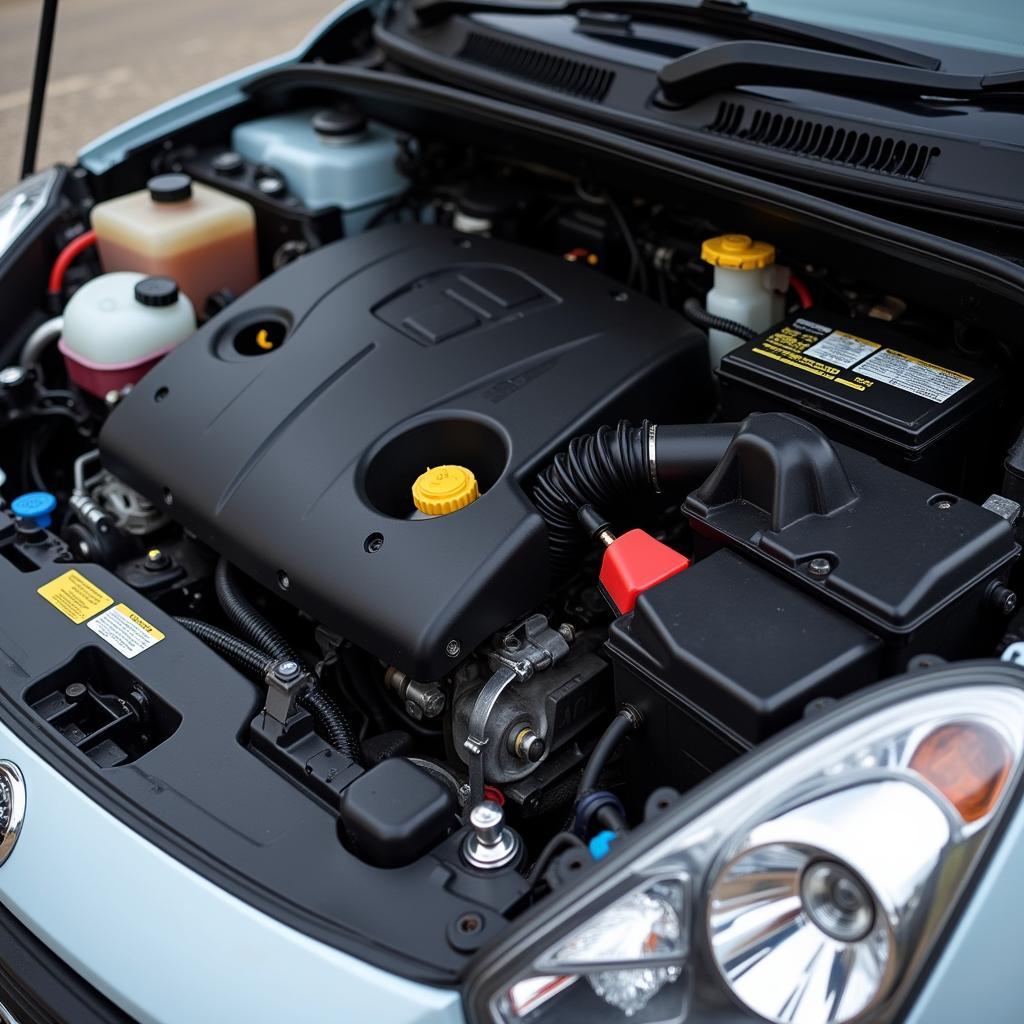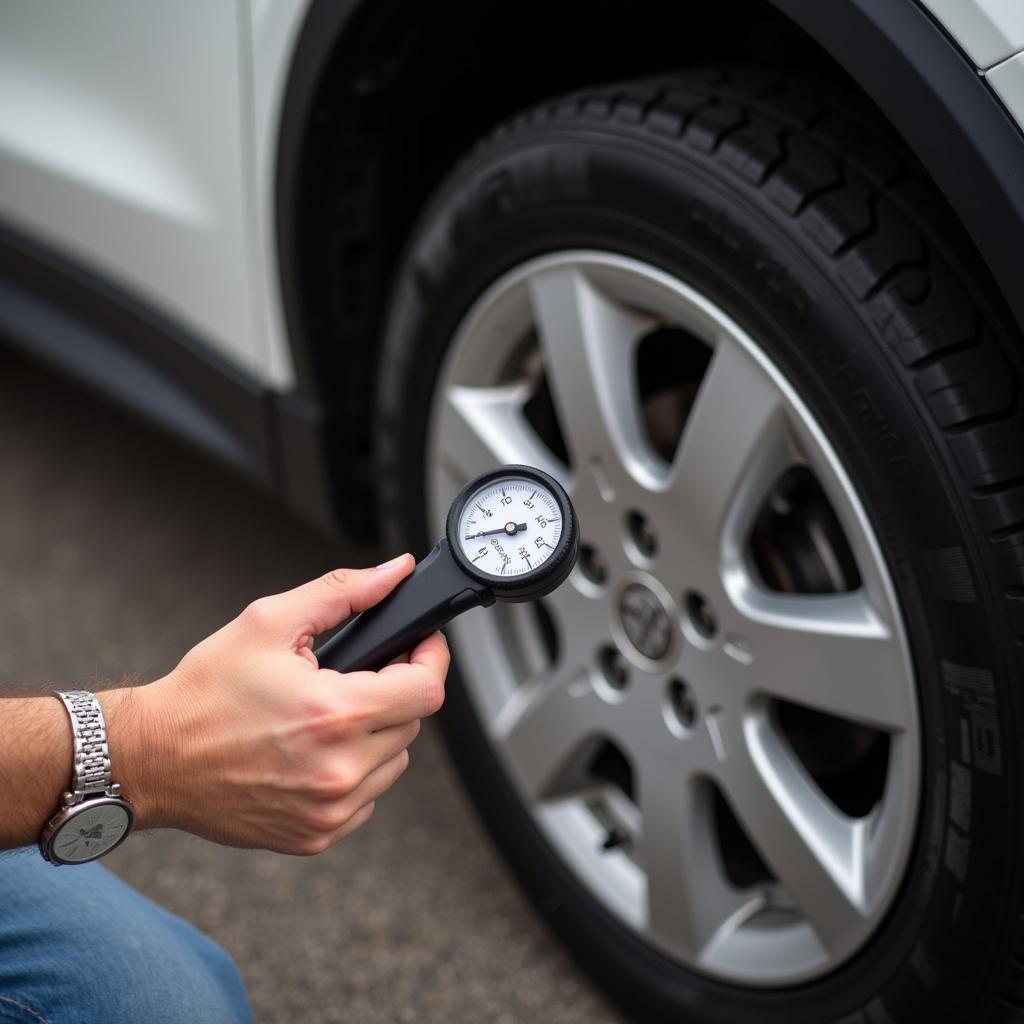Compact Car Maintenance is crucial for ensuring your vehicle’s longevity, performance, and safety. Proper upkeep not only saves you money in the long run but also contributes to a smoother, more enjoyable driving experience. This guide provides valuable insights and practical tips to help you keep your compact car in top condition. Find out everything you need to know, from routine checks to more complex repairs. Let’s dive in!
Maintaining a compact car doesn’t have to be a daunting task. By understanding the basics and following a regular maintenance schedule, you can keep your car running smoothly for years to come. One important aspect is understanding your car’s specific needs. For example, some subcompact cars might have different maintenance requirements than larger compact cars. You can find more information on maintenance rankings subcompact cars.
Why Compact Car Maintenance Matters
Regular compact car maintenance is essential for several reasons. Firstly, it prevents costly repairs down the road. Small issues, if left unaddressed, can quickly escalate into major problems requiring significant financial investment. Secondly, consistent maintenance improves fuel efficiency. A well-maintained engine operates more efficiently, saving you money at the pump. Thirdly, regular maintenance ensures your safety on the road. Properly functioning brakes, tires, and other components are crucial for safe driving.
 Compact Car Engine Compartment
Compact Car Engine Compartment
Many people opt for compact cars due to their perceived low maintenance compact car reputation. While compact cars generally require less maintenance than larger vehicles, regular upkeep is still crucial.
Essential Compact Car Maintenance Tasks
Oil Changes: The Lifeblood of Your Engine
Regular oil changes are arguably the most crucial aspect of compact car maintenance. Oil lubricates the engine’s moving parts, reducing friction and preventing wear and tear. It’s generally recommended to change your oil every 3,000-5,000 miles, but consult your owner’s manual for specific recommendations.
Tire Rotations and Pressure Checks: Keeping You Rolling Smoothly
Rotating your tires every 5,000-7,500 miles ensures even wear and tear, extending their lifespan. Checking your tire pressure regularly is equally important. Properly inflated tires improve fuel efficiency and handling.
Brake Inspections: Stopping Power When You Need It Most
Brakes are a critical safety component. Regular inspections are essential to ensure they are functioning correctly. Have your brakes checked at least once a year, or more frequently if you notice any unusual noises or performance issues.
“Regular maintenance is like preventative medicine for your car,” says John Smith, a seasoned automotive technician at Auto Experts Inc. “Addressing small issues before they become major problems saves you time, money, and headaches in the long run.”
 Checking Tire Pressure on a Compact Car
Checking Tire Pressure on a Compact Car
Understanding Your Car’s Maintenance Schedule
Every compact car comes with a manufacturer-recommended maintenance schedule outlined in the owner’s manual. This schedule specifies the recommended intervals for various maintenance tasks based on mileage or time. Familiarizing yourself with this schedule is key to keeping your car in optimal condition. If you have a 2008 Smart Car, you can refer to the 2008 smart car maintenance manual for specific guidelines.
DIY vs. Professional Maintenance
While some maintenance tasks, like checking tire pressure or fluid levels, can be easily performed at home, others require specialized tools and expertise. Knowing when to DIY and when to seek professional help is important.
“Don’t underestimate the value of a professional mechanic,” advises Emily Davis, Lead Mechanic at City Auto Repair. “Their trained eye can often spot potential problems that you might miss, preventing costly repairs down the line.”
Keeping Maintenance Costs Down
Compact car maintenance doesn’t have to break the bank. By following a few simple tips, you can keep costs under control. Shop around for the best prices on parts and services. Consider using aftermarket parts, which are often less expensive than OEM parts. You might be interested in researching the average maintenance cost for a smart two car for comparison. Also, consider learning to perform some basic maintenance tasks yourself.
For those seeking vehicles with minimal upkeep requirements, researching the best cars lowest maintenance can provide valuable insights.
Conclusion
Compact car maintenance is an investment that pays off in the long run. By following a regular maintenance schedule and addressing issues promptly, you can ensure your vehicle’s longevity, performance, and safety. Remember, preventative maintenance is always cheaper than reactive repairs. For all your compact car maintenance needs and expert advice, contact AutoTipPro at +1 (641) 206-8880 or visit our office at 500 N St Mary’s St, San Antonio, TX 78205, United States. We’re here to help you keep your compact car running smoothly.




Leave a Reply